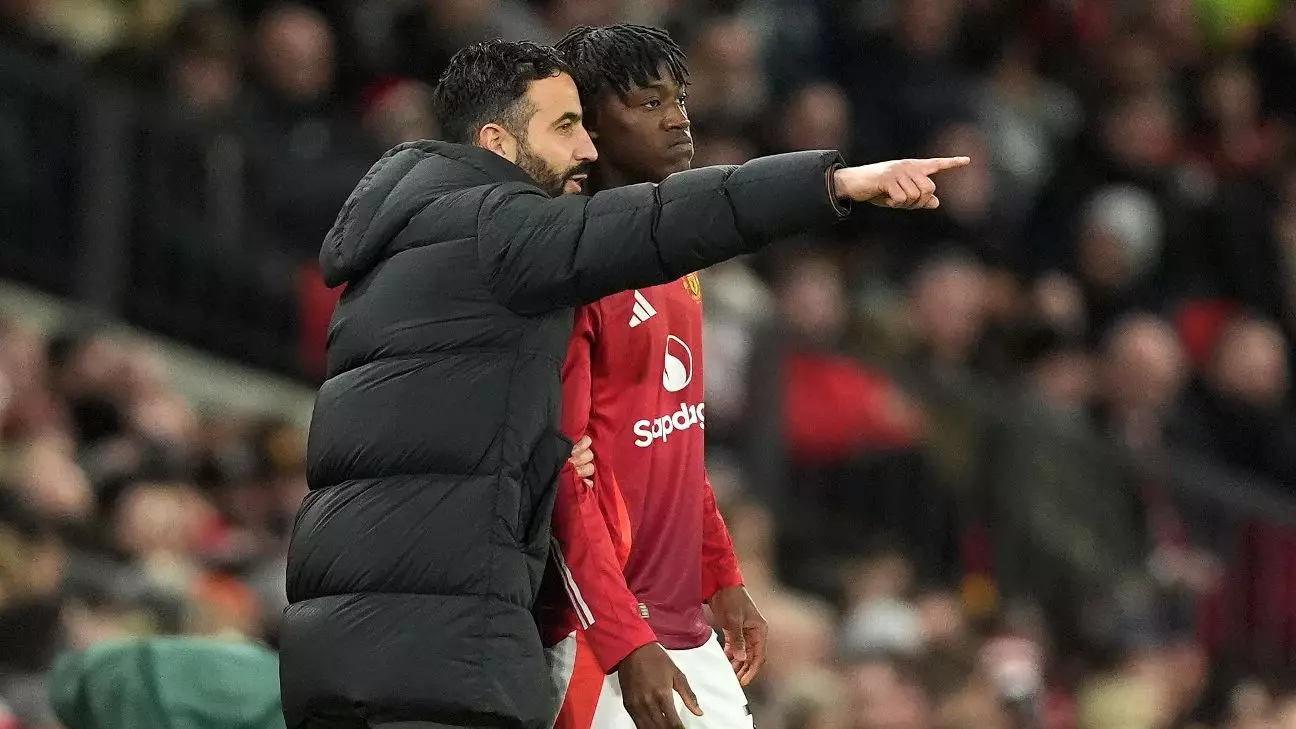As Manchester United navigates the complexities of the January transfer window, Ruben Amorim’s statements signal a cautious approach. He emphasizes a focus on retaining core players over acquiring new talent, reflecting the club’s precarious financial situation. Amorim’s remarks suggest that the club might not be in a position to significantly bolster its squad, which raises questions about their competitiveness, particularly as they eye critical fixtures in both domestic and European competitions.
This sense of restraint is underscored by Amorim, who remarked, “I don’t remember saying clearly that I want new players.” This assertion casts doubt on external rumors suggesting that the club is aggressively pursuing reinforcements. Instead, the focus appears to be on a careful evaluation of the existing squad and the player’s fit within the team dynamics—indicative of a more strategic and long-term mindset.
Financial Dynamics and Player Retention
The financial realities of Manchester United cannot be ignored. With looming Profit and Sustainability rules, the club faces challenges that compel it to consider lucrative offers for its best talents. The potential departure of promising young players like Kobbie Mainoo and Alejandro Garnacho is particularly concerning. Conversely, selling these academy graduates could alleviate some financial pressure, making such decisions both economically motivated and strategically laced with risk.
Amorim reiterated his desire to retain talented players, indicating, “We will see. I really like the players, especially the guys from the academy.” His affection for the squad is evident, yet he acknowledges that the overarching financial constraints could dictate the club’s actions come January. This creates a dilemma where the potential for growth and nurturing talent may be stifled by fiscal imperatives.
Looking ahead, United faces a challenging match against Arsenal in the FA Cup, with aspirations for a victory at the Emirates Stadium—a venue where they have faltered since January 2019. Amorim’s commitment to fielding a strong lineup underscores the importance of this competition, as he aims to instill a winning mentality within his players while balancing the rigors of upcoming Premier League clashes against Southampton and Brighton.
In his statement, “We want to continue [in the FA Cup],” Amorim articulates not just a desire for victory but also a vision for improving team performance amidst challenging circumstances. The inclusion of Altay Bayindir in place of André Onana for this significant fixture further illustrates the coach’s strategic approach to optimizing his squad’s potential.
In essence, Ruben Amorim’s tenure at Manchester United encapsulates the struggles of a club that is striving to emerge from both financial and performance-based uncertainties. The balance between maintaining a competitive edge while adhering to financial regulations is delicate. The future hinges on the club’s ability to develop its academy products and secure their contributions while carving out a path to sustainable success in the transfer market.
As the January window approaches, all eyes will be on Manchester United—not just for potential signings, but for how they can navigate a tumultuous landscape while fostering talent and pursuing glory in the FA Cup. Fans and stakeholders alike will watch closely, hoping for signs of a revival amid an environment fraught with challenges.

